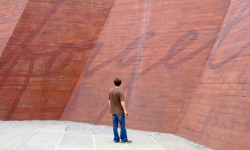
Jennie Ekigbo explains what she believes the church can learn from the current movement for racial justice.
While battling COVID-19 and an overload of disinformation, we are witnessing another global movement for racial justice. In the 1960s it was sparked by civil rights activism in the United States, buoyed by the post-colonial independence movements across Africa and Asia. In the 1980s and 1990s, we saw worldwide support for the anti‑apartheid movement in South Africa.
Today, the dissatisfaction with police brutality and ongoing institutional racism in the USA has reached another tipping point. Globally, people are standing in solidarity with the African American community, whilst also turning the spotlight on systemic racism in their own nations.
This is particularly the case in former European settler colonies. Here in Aotearoa New Zealand, conversations and actions have increased over the last few months. From the Black Lives Matter protests in our major cities (organised by people from the African, Māori, and Pasifika communities), to the critique of and even removal of colonial statues, changing of place names, and many lectures, workshops, and wānanga on systemic racism, tino rangatiratanga and more.
I believe that to dismiss this current moment as an ‘American problem, that shouldn’t dominate New Zealand’ is to miss an opportunity to participate in what God is already doing in this area here and elsewhere.
How we as the church choose to respond will either represent the Kingdom of heaven or acquiesce to the kingdom of this world.
The ministry of reconciliation
As Christians, Jesus has given us the ministry of reconciliation. Through Christ, we can cross divides and build bridges with confidence. In him our hope is sure, because these present troubles won’t last forever. We have the mandate to dream prophetically for a better tomorrow.
However, as a person of colour, with the various identities I hold and diverse spaces I inhabit, I cannot help but notice that the blueprint for ushering in the shalom of the Kingdom of heaven looks vastly different depending on one’s social location.
For those who benefit from the status quo (i.e. a society that upholds the Pākehā world view as neutral, normal and superior), the ministry of reconciliation often seeks an absence of conflict, cross-cultural worship services, diversity consultations, being nice, and ‘moving on’ from the past. Unfortunately, it does nothing to radically alter the systems and structures that have produced the divisions in the first place.
For those who are being severely harmed or losing their lives as a result of the status quo, the ministry of reconciliation requires more of us. With courage, we must first confront the truth of our colonial legacy. Then we must lament it and turn from it. Then in partnership with God, we must work to dismantle all ideologies and ways of being that diminish and oppress Māori and Tauiwi of colour, while planting seeds that lead to flourishing for all.
Unsurprisingly, the former group often dominates this conversation. This gap in understanding of what constitutes the ministry of reconciliation is a source of weariness, pain and discouragement among many—particularly Christians who are indigenous or of other ethnic minorities. For people outside of the church, it is a source of scorn, reinforcing the idea that the church is irrelevant to their lived experiences.
A new normal
It doesn’t have to be this way. I believe that God is working through this current moment and inviting us to create something new. We ought to desire a new normal, not a return to the normal we have always had.
As Christians, we follow a crucified King—one who was, and is, victorious, reigning at the right hand of God. Yet he also identifies with human suffering and he judges nations, communities and individuals for abusing people on the margins.
Therefore, our response to this moment should be consistent with that. This means moving beyond elevating the voices who are benefitting from the status quo to elevating the voices that are crying out for justice.
For instance, we would do well to listen to indigenous peoples in the Pacific and Amazon who have been warning us of the climate crisis long before Greta Thunberg. We would also do well to listen to activists and kaitiaki who have been standing up for their sovereignty at Ihumātao, Mauna Kea (Hawaii), Standing Rock (USA), as well as Aboriginal Australians speaking out against the disproportionate number of their people dying from police brutality.
Therefore it is important that we move beyond the notion that merely interpersonal relations and personal responsibility are the keys to ending racism. Rather, we need to begin to reckon with our collective responsibility. This is because although racism is a sin, it is both at the individual level and the systemic level.
Some practical steps we can all take:
#1 Prepare your mind for the road ahead
This is a marathon and not a sprint. Racism is a social and political issue, and also spiritual (Ephesians 6:12). Knowing this, we should expect push-back, opposition and even outright hostility to this work. Remember that even though Martin Luther King Jr preached peace, he was still murdered for his message.
#2 Start (or continue) learning with intention
This is a Kingdom issue. If you haven’t already, it is critical that you expand your bookshelf, podcast playlist and movie watchlist. Non‑white theologians, scholars and thought leaders have been writing and speaking about these issues for a very long time. Learn from them, rather than the few voices you may feel comfortable with.
#3 Learn like a disciple—use your ears twice as much as you use your mouth
This is particularly important for Pākehā. For many, the anti-racism journey is new. Without developing resilience to have these conversations, it is very easy to brush aside the lived experiences of Māori and Tauiwi of colour, ultimately causing damage. However, if you hear racist nonsense being spouted, speak up.
#4 Journey together with intention and accountability
Dame Whina Cooper, Martin Luther King Jr, Nelson Mandela and Mahatma Gandhi didn't stumble accidentally into victory. They had a plan. They worked hard. They journeyed in community.
#5 Crucify your idols of comfort, because the discomfort is where the growth happens
Remember that your feelings of discomfort, particularly if you are Pākehā, pale in comparison to the everyday reality of living with systemic racism. Now is the time to lean in.
Terms defined
Institutional/systemic racism: This refers specifically to the ways in which systems, institutional policies and practices create different outcomes for different racial groups. Source: Race Equity Tools racialequitytools.org/glossary#institutional-racism.
People of colour: Often the preferred collective term for referring to non-white racial groups. Source: Race Equity Tools racialequitytools.org/glossary#people-of-color from Race Forward Race Reporting Guide raceforward.org/reporting‑guide.
Contributor: Jennie Ekigbo
Jennie is a passionate advocate for social justice. Her main interests are racial justice and faith, gender justice and economic justice. She co-leads a racial justice and reconciliation group for Christians called Be the Bridge. Originating from the USA, this group aims to help the church be a credible witness on racial justice, equity and reconciliation. Jennie attends Hillsborough Baptist Church (Hills Church) in Auckland, together with her husband Chris and daughter Uchem. If you want to hear more from Jennie, she is speaking at The Justice Conference on 31st October 2020. Go to thejusticeconference.org.nz for more info.
For another article on this topic, read Racism - repentance, reversal & repair.


